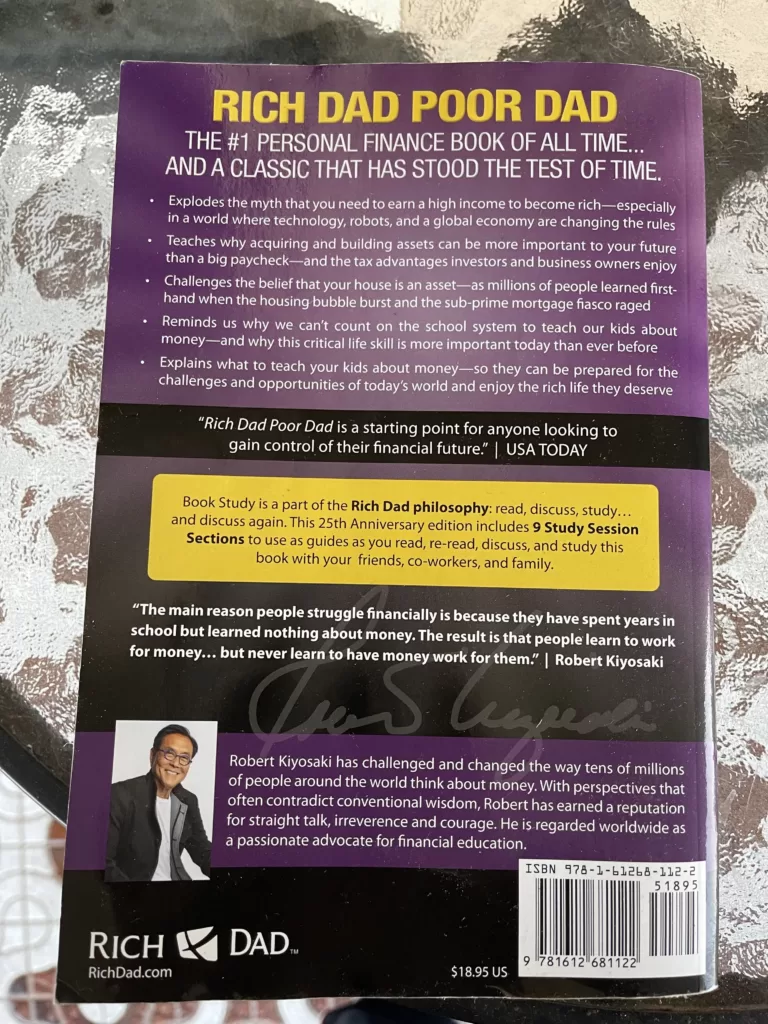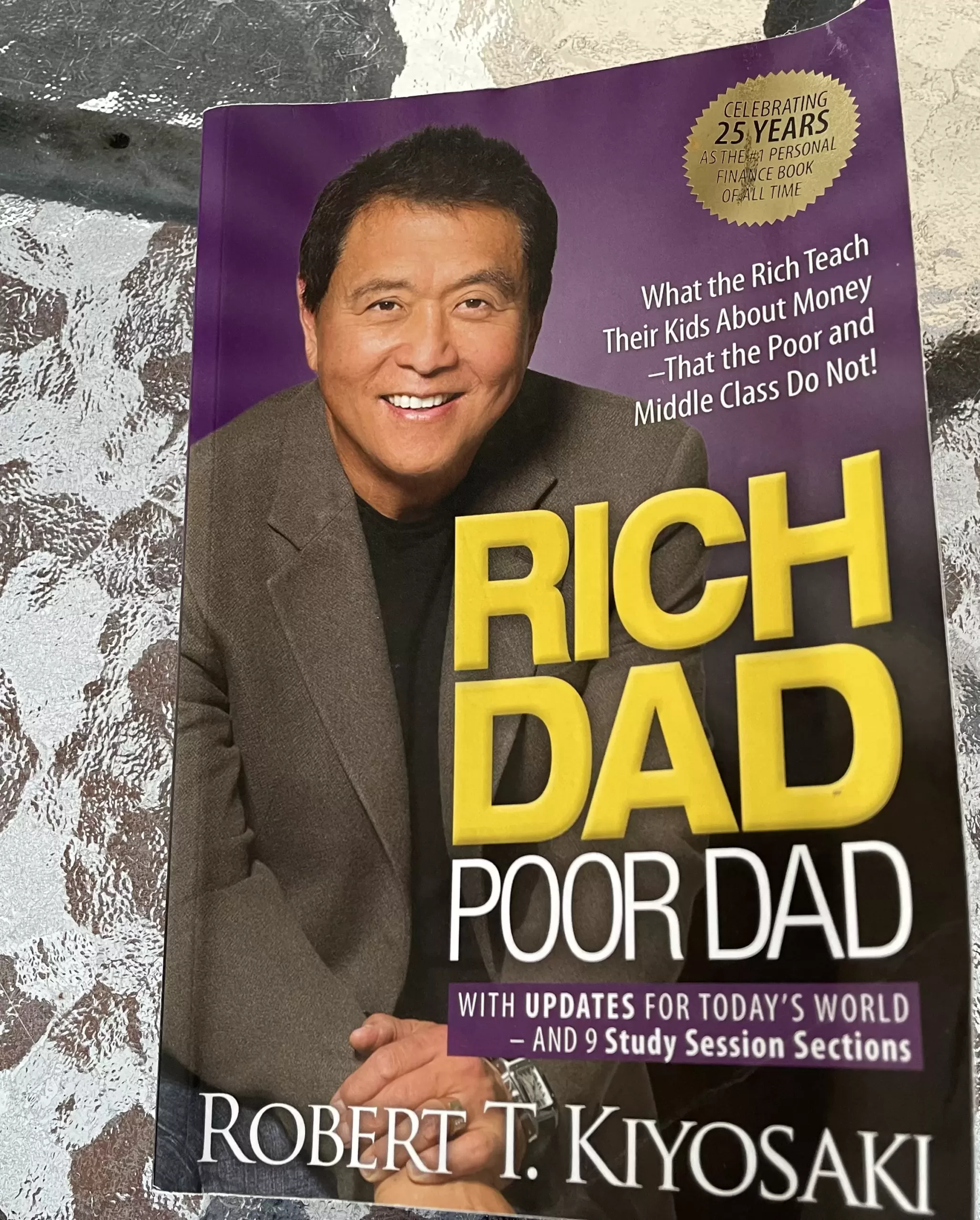Table of Contents
Introduction: The Story Behind “Rich Dad Poor Dad” and Its Impact on Financial Education
Robert Kiyosaki’s “Rich Dad Poor Dad” is a book that has had a profound impact on financial education and personal finance. The book tells the story of Kiyosaki’s two fathers, one who was highly educated but struggled with money, and another who never finished eighth grade but became a self-made millionaire. Through his experiences with both fathers, Kiyosaki learned valuable lessons about money management and achieving financial freedom.
Since its publication in 1997, “Rich Dad Poor Dad” has become a best-seller and has been translated into dozens of languages. The book’s success can be attributed to its simple yet powerful message: that anyone can achieve financial success if they are willing to learn and take action.
Kiyosaki’s book has inspired millions of people around the world to take control of their finances and pursue their dreams. Whether you are just starting out on your financial journey or looking for new ideas to improve your finances, “Rich Dad Poor Dad” is an essential read that will help you gain the knowledge and confidence you need to achieve financial freedom.
The Key Lessons from “Rich Dad Poor Dad” that Can Change Your Mindset About Money
Financial literacy is an essential life skill that can make a significant impact on our lives. It can help us make better decisions about money, create passive income streams, and build wealth over time. One of the most influential books on financial literacy is “Rich Dad Poor Dad” by Robert Kiyosaki.
In this book, Kiyosaki shares his personal experiences and lessons learned from his two father figures – his biological father (poor dad) and his best friend’s father (rich dad). He explains the difference between assets and liabilities, the importance of cash flow management, and how real estate investment can be a powerful wealth-building tool.
In this section, we will explore some of the key lessons from “Rich Dad Poor Dad” that can change your mindset about money. By applying these lessons to your own life, you can start making better financial decisions and achieve financial freedom.
“Rich Dad Poor Dad” Success Stories: How Real People Achieved Financial Independence Using the Book’s Principles
Rich Dad Poor Dad by Robert Kiyosaki has been a game-changer for many people when it comes to achieving financial independence. The book’s principles have helped countless readers take control of their personal finances and build wealth.
In this section, we will explore real-life success stories of individuals who have applied the lessons from Rich Dad Poor Dad in their lives. These inspiring stories will showcase how anyone can achieve financial freedom with the right mindset, strategies, and actions.
From starting successful businesses to investing in real estate and stocks, these personal finance tips and tricks from Rich Dad Poor Dad book readers are sure to inspire you on your own journey toward financial success. So sit back, relax, and get ready to be inspired by these incredible stories of financial achievement.
The Criticisms of “Rich Dad Poor Dad”: What the Critics Say and How to Address Them
“Rich Dad Poor Dad” by Robert Kiyosaki has been a controversial book since its publication. While it has gained immense popularity and has been a best-seller for years, it is not without criticism. Several critics have pointed out flaws in the book’s content, which has led to some skepticism about its teachings.
In this section, we will explore the most popular criticisms of “Rich Dad Poor Dad” and how to respond to them. It is essential to address these criticisms so that readers can make an informed decision about whether or not to take the book’s advice seriously. By understanding and responding to these critiques, we can gain a more nuanced understanding of the book’s teachings and apply them more effectively in our lives.
“Rich Dad Poor Dad”: A Roadmap to Achieving Financial Freedom in Today’s World
In today’s world, achieving financial freedom is a goal that many of us aspire to. The book “Rich Dad Poor Dad” by Robert Kiyosaki has become a popular roadmap for achieving this goal. The principles outlined in the book have proven to be timeless and can be applied in different financial situations, including investing for retirement or managing debt efficiently.
One of the key takeaways from the book is the importance of financial education and taking control of your finances. By understanding how money works and developing a mindset focused on creating assets rather than liabilities, you can start building wealth and achieving financial freedom.
The book also emphasizes the power of investing in assets such as real estate, stocks, and businesses. By making smart investment decisions and focusing on building passive income streams, you can create long-term wealth that will provide financial stability for years to come.
Whether you are just starting out on your financial journey or looking to take your finances to the next level, “Rich Dad Poor Dad” provides valuable insights and practical advice that can help you achieve your goals.

Conclusion: Why You Should Read “Rich Dad Poor Dad” Now and Start Your Journey Towards Financial Prosperity
If you’re looking to improve your financial situation and achieve prosperity, “Rich Dad Poor Dad” is a must-read book. This book has been a game changer for many people around the world, providing valuable insights on how to build wealth and achieve financial freedom.
The author, Robert Kiyosaki, shares his personal experience of growing up with two dads: his real father who was highly educated but struggled financially, and his best friend’s father who was a successful entrepreneur. Through their contrasting perspectives on money and investing, Kiyosaki learned invaluable lessons that he shares in this book.
By reading “Rich Dad Poor Dad,” you will gain a new perspective on money and how to make it work for you. You will learn about the importance of financial education, asset building, and creating passive income streams. These are all crucial elements in achieving long-term financial prosperity.
So if you’re ready to take control of your finances and start building wealth, pick up a copy of “Rich Dad Poor Dad” today. It’s never too late to start your journey toward financial success.


[…] actual books (Rich Dad Poor Dad) or magazines: Enjoy the tactile pleasure of turning pages in addition to your digital […]
[…] Rich Dad Poor Dad: Robert Kiyosaki […]